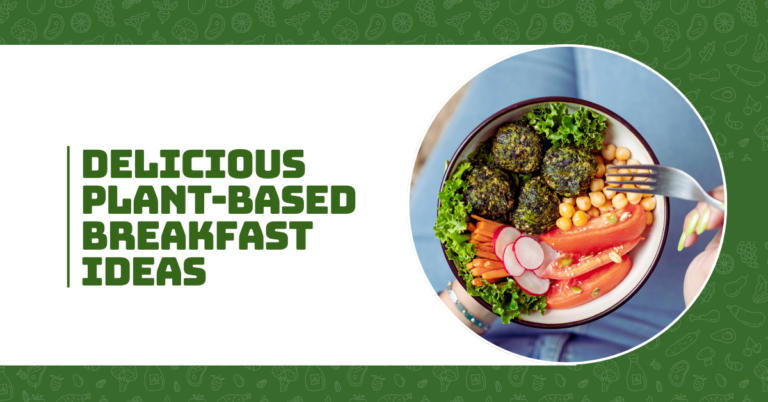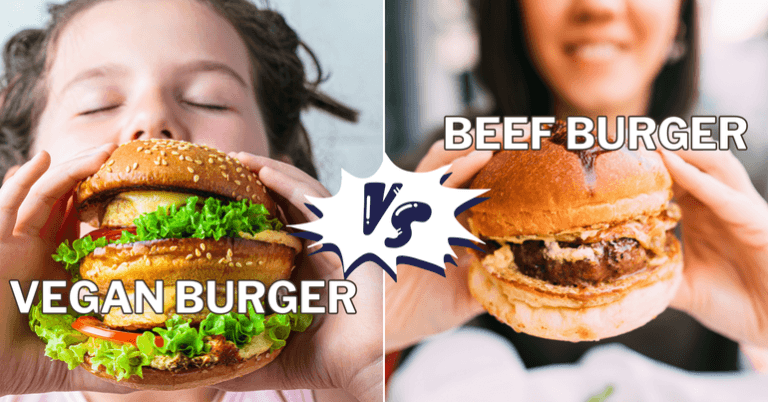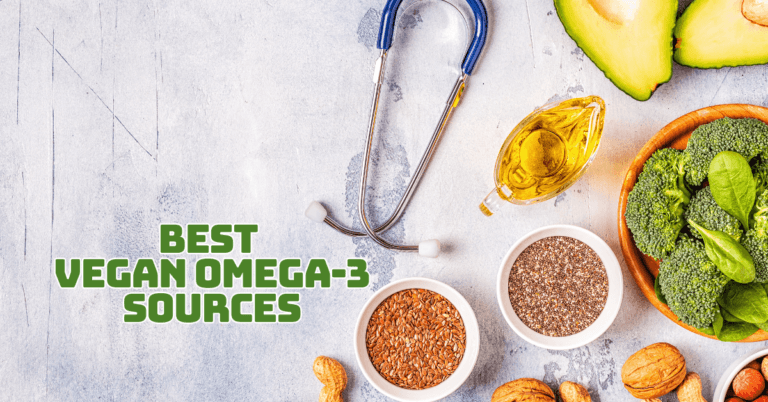Problems With Being Vegan
Problems With Being Vegan
Taking up veganism is a morally and environmentally sound decision that can positively impact one's health and well-being.
Despite the numerous benefits of adopting a vegan lifestyle, acknowledging and addressing potential problems with being vegan, ranging from social challenges to nutritional concerns, is crucial for a well-rounded understanding of this ethical and environmentally friendly choice.
The road to cruelty-free living can be rewarding and complicated, involving everything from social and cultural barriers to nutritional concerns.
This article will delve into various problems that individuals face when embracing veganism. From the perennial query about nutrient deficiencies to social dynamics and cultural influences, we explore the multifaceted nature of these challenges.
Additionally, we'll provide practical solutions and insights to empower individuals on their quest for a sustainable and compassionate lifestyle.
Join us as we navigate the common concerns surrounding veganism, shedding light on overcoming these hurdles and thriving in the diverse world of plant-based living.

1. Nutrient Deficiency Concerns Of Vegans
New vegans often express concerns about potential nutrient deficiencies and are apprehensive about meeting their dietary needs without animal products.
Deficiencies in essential nutrients such as vitamin B12, iron, calcium, and omega-3 fatty acids are key among these concerns.
Most B12 is found in animal products and is necessary for nerve and red blood cell function. Vegans can address this deficiency by incorporating fortified foods like plant-based milk, cereals, and nutritional yeast. Supplementation is also a practical option, ensuring adequate B12 levels.
Legumes, beans, and leafy greens are good plant-based sources of iron, which is necessary for the blood's oxygen transport system. Enhancing iron absorption by consuming vitamin C-rich foods alongside plant-based iron sources is beneficial.
Calcium, vital for bone health, is naturally present in fortified plant-based milk, tofu, and leafy greens. Supplementing with calcium or choosing fortified foods is recommended for those with limited dietary intake.
Omega-3 fatty acids, crucial for heart health, are found in algae-based supplements or plant sources like chia seeds and flaxseeds. Incorporating these into the diet helps maintain optimal omega-3 levels.
To effectively navigate nutrient deficiencies, new vegans should prioritize mindful food choices, explore fortified options, and, when necessary, consult with a healthcare professional or a registered dietitian.
This proactive approach ensures a balanced and nutritionally sound vegan diet, dispelling concerns and promoting a sustainable and health-conscious plant-based lifestyle.

2. Social And Cultural Challenges Of Vegan Living
Social and cultural challenges can be significant for vegan living, especially when navigating events with limited plant-based options. However, proactive communication and contribution to communal spreads can ease these difficulties.
Navigating events and gatherings with limited vegan options can take time and effort. One effective strategy is proactively communicating dietary preferences with event hosts, allowing them to accommodate plant-based choices.
Alternatively, attending such gatherings with a prepared dish ensures a vegan option while contributing to the communal spread.
Effective communication with friends and family about vegan choices is crucial for fostering understanding and support.
Initiating open, non-confrontational conversations allows individuals to share the reasons behind their choices, whether for ethical, environmental, or health reasons.
Providing resources or suggesting documentaries that elucidate the benefits of a vegan lifestyle can further aid comprehension. Moreover, sharing vegan recipes and inviting loved ones to partake in plant-based meals fosters a positive experience.
Encouraging participation in meal preparation or hosting vegan-themed gatherings can make the transition more enjoyable and inclusive.
In summary, addressing social and cultural challenges involves proactive communication, preparation for events, and creating an environment of understanding and acceptance.
By engaging in open dialogues and collaborative culinary experiences, individuals can navigate these challenges successfully while fostering support from friends and family on their vegan journey.

3. Limited Dining Out Options For Vegans
Limited dining-out options can challenge individuals to adhere to a vegan lifestyle, especially in areas where plant-based choices may be scarce.
However, with the growing popularity of veganism, there are strategic approaches to navigate this challenge effectively. Utilizing apps and websites specifically designed to identify vegan-friendly restaurants proves invaluable.
Platforms like HappyCow and Yelp allow users to locate nearby eateries with extensive vegan options, ensuring a positive dining experience.
Contacting restaurants in advance is another proactive measure. By calling ahead, individuals can inquire about vegan offerings, request modifications to existing dishes, or even provide suggestions for potential vegan additions to the menu.
This enhances the dining experience and encourages establishments to consider expanding their plant-based offerings.
Exploring ethnic cuisines is a creative solution. Many cultures have naturally plant-based dishes deeply ingrained in their culinary traditions.
Opting for ethnic restaurants or cuisines known for their vegetable-centric meals broadens dining options and introduces unique flavours and culinary experiences.

4. Limited Convenience Store Options For Vegans
Navigating limited convenience store options can pose problems for vegans. Yet, strategic selections can lead to the discovery of readily available and convenient snacks for a thriving plant-based lifestyle.
The first challenge is often the need for labelled vegan snacks on store shelves. However, recognizing that many whole foods are inherently vegan opens up many options.
Fresh fruits, nuts, and seeds are excellent choices and are usually available in convenience stores. Trail mixes that incorporate these elements provide a convenient and energy-boosting snack.
For packaged snacks, look for dried fruit, veggie chips, and pretzels, which are frequently vegan. Some convenience stores also stock plant-based protein bars or granola bars, providing a quick and portable energy source. Nut butter packets, peanut or almond, are compact and easy to carry, making them an ideal on-the-go option.
Pair these with whole-grain crackers or rice cakes for a satisfying and balanced snack. Increasingly, more convenience stores are recognizing the demand for vegan options and expanding their offerings. Scan the shelves for hummus and vegetable snack packs, guacamole, or pre-packaged salads.
If you can access a microwave, consider instant vegan oatmeal cups or heat-and-eat plant-based soups, providing a warm and satisfying option during colder months.
In essence, while convenience stores may present challenges, creativity and exploration within the store's offerings can reveal various portable, convenient, and tasty vegan snacks to keep you fueled on the go.

5. Expense Of Vegan Specialty Products
The perceived expense of specialty plant-based products, such as meat substitutes and dairy alternatives, can be a concern for individuals considering or already adhering to a vegan lifestyle.
While these products might seem pricier than their conventional counterparts, practical strategies exist to maintain a budget-friendly approach to vegan living.
One cost-effective strategy involves focusing on whole, unprocessed foods. Staples like grains, legumes, fruits, and vegetables are often more affordable than specialized vegan products.
Buying these ingredients in bulk can further reduce costs and provide a foundation for diverse and nutritious plant-based meals. Exploring local markets and discount stores is another effective method to find reasonably priced vegan products.
Many markets offer competitive prices on fresh produce, and discount stores may carry affordable plant-based pantry staples.
Cooking at home allows for significant cost savings. Preparing meals from scratch using basic ingredients empowers individuals to control portion sizes and experiment with diverse recipes, minimizing the reliance on pricier pre-packaged vegan products.
Taking advantage of sales, discounts, and coupons is a savvy approach. Many stores offer promotions on plant-based items, allowing individuals to stock up on essentials without breaking the bank.
Additionally, considering seasonal produce and planning meals around what is locally available and on sale can contribute to significant savings. Frozen fruits and vegetables are often more budget-friendly than fresh and provide similar nutritional benefits.
While specialty vegan products might seem costly, adopting budget-friendly strategies can address problems with vegan living, making it accessible and economically sustainable by prioritizing whole foods, exploring local markets, cooking at home, and taking advantage of discounts.
Embracing these approaches supports financial well-being and fosters a diverse and nutritious plant-based diet.

6. Managing Vegan Meal Preparation Time
Effectively managing meal preparation time is a common concern for individuals embracing a vegan lifestyle, particularly those with hectic schedules. However, several strategies can alleviate this challenge and make preparing plant-based meals more efficient.
Planning and batch cooking on weekends emerge as a cornerstone solution. Preparing larger quantities of staple foods like grains, beans, and vegetables takes a few hours, but the meals can be put together quickly during the week.
Storing these components in the refrigerator or freezer streamlines the cooking process during busy weekdays. Another time-saving approach is to utilize simple and quick recipes.
Opting for meals that require minimal ingredients and uncomplicated preparation accelerates the cooking process and simplifies the grocery shopping experience. One-pot dishes, stir-fries, and sheet-pan meals are excellent options for those seeking efficiency in the kitchen.
Experimenting with meal prep services is a modern solution that caters to individuals with limited time for hands-on cooking.
Many services offer pre-portioned ingredients and easy-to-follow instructions, allowing for the creation of diverse and flavourful vegan meals without the hassle of extensive preparation.
Incorporating time-saving kitchen gadgets, such as a slow cooker or Instant Pot, can further expedite the cooking process.
These appliances allow hands-off cooking and are particularly useful for preparing stews, soups, and grains with minimal effort.
Managing meal preparation time as a vegan involves strategic planning, batch cooking, embracing simple recipes, and exploring modern solutions like meal prep services.
These approaches empower individuals to enjoy the benefits of a plant-based diet without compromising time or succumbing to the pressures of a busy lifestyle.

7. Vegan Criticism And Misconceptions
Facing criticism and misconceptions about veganism is a common challenge for individuals dedicated to a plant-based lifestyle.
Navigating these encounters with grace and fostering positive discussions requires a combination of empathy, education, and effective communication.
Handling criticism involves maintaining composure and responding with patience. Instead of becoming defensive, individuals can share personal experiences and reasons for veganism.
Presenting information calmly and confidently can help dispel misunderstandings. Addressing misconceptions requires proactive education. Many criticisms arise from misinformation about the nutritional adequacy of a vegan diet.
Offering well-researched resources, sharing documentaries, and citing reputable studies can counter these misconceptions.
It can be effective to draw attention to the increasing amount of scientific data that supports the health advantages of a well-balanced vegan diet.
Promoting understanding often involves finding common ground. Emphasizing shared values, such as concern for the environment, animal welfare, or personal health, can bridge gaps and create a more receptive atmosphere for discussion.
Additionally, showcasing the variety and deliciousness of plant-based foods through shared meals or cooking demonstrations can effectively shift perceptions positively.
Engaging in positive discussions requires active listening and open-mindedness. Acknowledging different perspectives while maintaining a constructive dialogue fosters a more receptive environment for exchanging ideas. Encouraging questions and providing thoughtful answers contribute to a mutually respectful conversation.
Handling criticism and misconceptions about veganism requires patience. Still, by staying calm, providing accurate information, finding common ground, and engaging in positive discussions, individuals can effectively address problems with being vegan living and contribute to a more informed and open-minded perspective.
By staying calm in the face of criticism, providing accurate information, finding common ground, and engaging in positive discussions, individuals can contribute to a more informed and open-minded perspective on veganism.

8. Labelling Confusion In Vegan Products
A key component of sticking to a vegan diet is reading food and product labels for hidden non-vegan ingredients. However, this can often be difficult because of confusing or complicated labelling.
To overcome this obstacle, people can use a variety of techniques and practical resources to ensure they make morally and intellectually sound decisions.
Understanding common non-vegan ingredients is a fundamental step. Ingredients like gelatin, certain colourings (e.g., carmine), and various additives may be derived from animals.
Familiarizing oneself with these components empowers individuals to identify potential non-vegan items on product labels quickly.
Apps and websites dedicated to decoding product labels offer invaluable assistance. Apps such as “Is It Vegan?” and “Bunny Free” allow users to scan barcodes or search product databases to determine whether a particular item aligns with vegan principles.
These tools streamline the process of checking labels and provide real-time information on a wide range of products.
Online resources and guides, including websites like VegFAQs and Vegan Society, offer comprehensive lists of both vegan and non-vegan ingredients.
These references can be handy when encountering unfamiliar terms on labels, helping individuals make more informed choices during their shopping.
Additionally, contacting manufacturers directly can provide clarity on labelling ambiguity. Many companies are responsive to inquiries about the vegan status of their products and can provide detailed information about sourcing and production processes.
Mastering the art of deciphering product labels is crucial for addressing problems with being vegan living, and it involves personal education, using dedicated apps, and leveraging online resources to ensure ethical alignment with a plant-based lifestyle.
By staying informed and utilizing available tools, individuals can confidently navigate the complex landscape of product labels, ensuring that their choices align with the ethical principles of a vegan lifestyle.

9. Culinary Creativity Burnout
Experiencing burnout from constantly experimenting with new vegan recipes is not uncommon, particularly for those seeking variety in their plant-based meals.
To overcome this culinary creativity burnout, individuals can implement practical strategies that balance the desire for innovation with the need for simplicity and familiarity.
Simplifying meals by incorporating familiar and easy-to-prepare dishes is an effective approach. Returning to beloved recipes reduces the mental load of constant experimentation and provides comfort and satisfaction.
Staple meals that require minimal effort, such as grain bowls, stir-fries, or pasta dishes, can be reliable go-to's during periods of burnout.
Exploring global cuisines introduces diversity without the need for intricate recipe development. Many international cuisines naturally feature a variety of plant-based dishes.
Embracing the flavours of Mediterranean, Asian, or Latin American cuisines, for instance, allows individuals to enjoy different tastes without the pressure of reinventing the culinary wheel.
Joining vegan cooking communities provides a valuable source of inspiration. Engaging with like-minded individuals who share recipes, tips, and meal ideas fosters community and reignites enthusiasm for plant-based cooking.
Social media groups, forums, and local meet-ups are a few examples of platforms that allow people to share ideas and encourage one another through cooking challenges.
Managing culinary creativity burnout involves a balanced approach of simplicity, global exploration, and community engagement.
By incorporating familiar dishes, embracing international flavours, and connecting with the vibrant vegan cooking community, individuals can rekindle their passion for plant-based cooking without succumbing to overwhelm.

10. Vegan Fashion And Personal Care Challenges
Extending vegan principles beyond food to encompass fashion and personal care products introduces challenges, primarily due to limited availability and the need for more labelling in these industries.
However, individuals committed to a vegan lifestyle can navigate this terrain by adopting thoughtful strategies. Researching cruelty-free brands is fundamental in aligning fashion and personal care choices with vegan values.
Nowadays, many businesses mark their goods as cruelty-free, meaning no animals are used in manufacturing. Consumers can make better decisions using the extensive lists of cruelty-free brands provided by specialized websites like Leaping Bunny and Cruelty-Free Kitty.
Supporting vegan companies contributes to the growth of a compassionate market. By actively seeking out and purchasing products from companies with a clear commitment to vegan and cruelty-free practices, individuals encourage ethical business practices and help expand the availability of such products.
Gradually transitioning to cruelty-free alternatives allows for a smoother adjustment. As individuals use up non-vegan products, they can replace them with cruelty-free alternatives, preventing unnecessary waste while aligning their personal care routine with ethical values.
Discussing the importance of clear labelling with brands and retailers encourages transparency and raises awareness about consumer preferences for cruelty-free options.
As the demand for vegan fashion and personal care products rises, companies may become more proactive in providing clear product information.
Overcoming vegan fashion and personal care challenges involves diligent research, intentional support for cruelty-free brands, gradual transitions, and active advocacy for clearer labelling.
By integrating these strategies, individuals can confidently extend their vegan principles into other aspects of their daily lives, promoting a more compassionate and ethical consumer culture.

Conclusion
In conclusion, while embracing a vegan lifestyle involves overcoming problems with being vegan, the journey is navigable with knowledge, resourcefulness, and a commitment to positive change, showcasing the evolving landscape of plant-based living.
It's essential to recognize that the vegan journey is not without its hurdles, but these challenges are a testament to the evolving landscape of plant-based living.
As awareness rises and more resources become accessible, people can better make educated decisions, promote understanding, and support the larger movement for a sustainable and compassionate world.
By confronting and conquering these obstacles, people can find their resilience and the life-changing potential of adopting a vegan lifestyle.
I trust you enjoyed this article on the Problems With Being Vegan. Please stay tuned for more blog posts to come shortly.
JeannetteZ
>>>Please click here to read my Vegan Travel Guides To World Destinations<<<
>>>Do You Want To Become An Excellent Vegan Home Chef? Do You Want To Learn How To Create Your Own Delicious, Healthy AND 100% Vegan For You And Your Family? Click here for My #1 Recommendation<<<
Your Opinion Is Important To Me
Do you have thoughts, ideas, or questions? Do you have any questions or ideas? I would love to hear from you. Please leave me your questions, experiences, and remarks about this article on Problems With Being Vegan in the comments section below. You can also email me at Jeannette@LivingTheVeganLifestyle.org.
Disclosure
This post may contain affiliate links. I earn from qualifying purchases as an Amazon Associate and other affiliate programs. Please read my full disclosure.
Here are links to some of my favourite articles:
Best Vegan Restaurants In Munich, Germany
20 Best Tips For Raising Vegan Kids
12 Best Easy Kid-Friendly Vegan Recipes
Ways To Learn Vegan Parenting With Advantages
Best Vegan Restaurants In Naples, Italy







Wonderful site! My husband and I have been vegan for 45 years. So we can attest to it being healthy. Most important to us is that its healthy for animals and the earth.
When I was a teen Peace Pilgrim came through our town and my mother invited her to dinner. We fixed a completely vegan meal. I was much impressed and resolved to be vegan. It was a few years before I accomplished that but I’ve always been grateful to Peace Pilgrim for enlightening me.
Thanks so much for your comment, Francis. It is incredible how a visit from the Peace Pilgrim can impress a teen. You and your husband are living proof that a vegan diet is healthy in the long term.
Yes, I fully believe in veganism. I want to do something good for our planet with all its animals and the environment. On top of it, as you say, the vegan diet is very healthy. As a kid, I was forced to eat meat. My mother thought in those days that meat was good for us children. I never liked its taste, and the thought of animals suffering because I am eating meat was horrible. I am glad that I can now eat what I want, and I find veganism a very intriguing lifestyle.